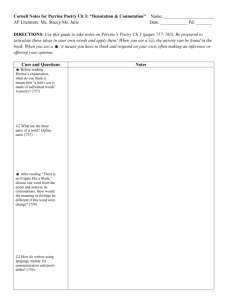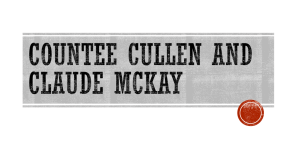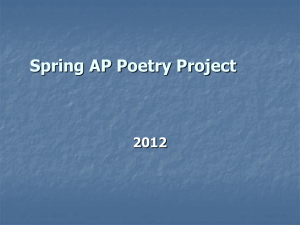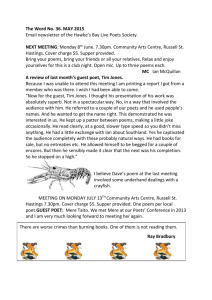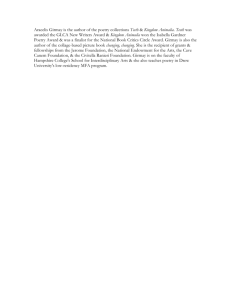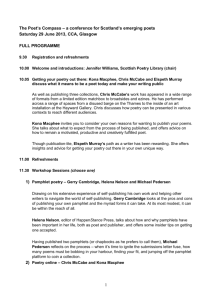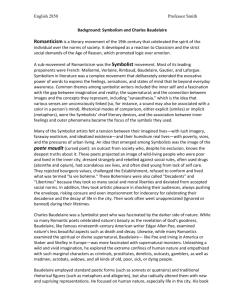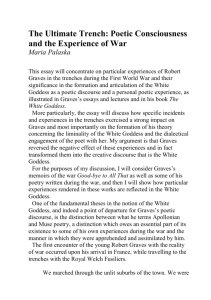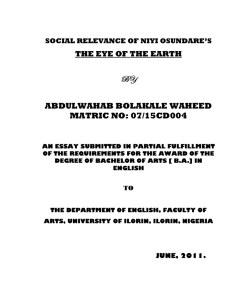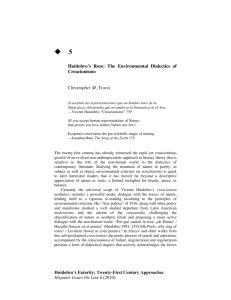Sarah Balen thesis summary: “A City Rooted Out of Time” In Plato`s
advertisement
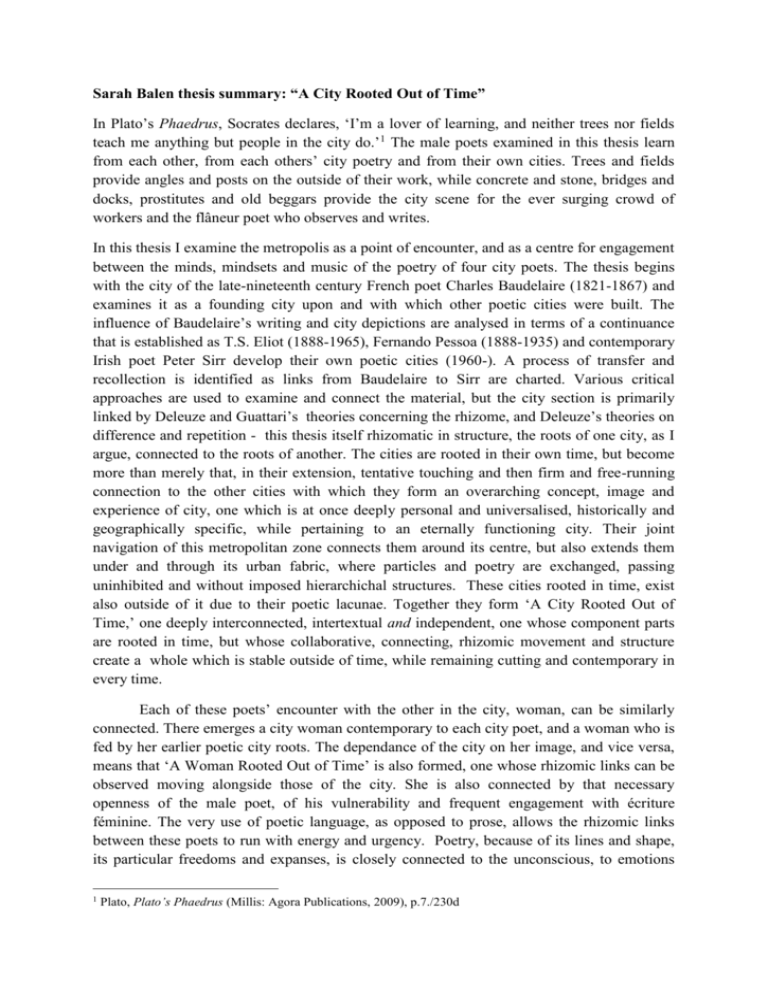
Sarah Balen thesis summary: “A City Rooted Out of Time” In Plato’s Phaedrus, Socrates declares, ‘I’m a lover of learning, and neither trees nor fields teach me anything but people in the city do.’1 The male poets examined in this thesis learn from each other, from each others’ city poetry and from their own cities. Trees and fields provide angles and posts on the outside of their work, while concrete and stone, bridges and docks, prostitutes and old beggars provide the city scene for the ever surging crowd of workers and the flâneur poet who observes and writes. In this thesis I examine the metropolis as a point of encounter, and as a centre for engagement between the minds, mindsets and music of the poetry of four city poets. The thesis begins with the city of the late-nineteenth century French poet Charles Baudelaire (1821-1867) and examines it as a founding city upon and with which other poetic cities were built. The influence of Baudelaire’s writing and city depictions are analysed in terms of a continuance that is established as T.S. Eliot (1888-1965), Fernando Pessoa (1888-1935) and contemporary Irish poet Peter Sirr develop their own poetic cities (1960-). A process of transfer and recollection is identified as links from Baudelaire to Sirr are charted. Various critical approaches are used to examine and connect the material, but the city section is primarily linked by Deleuze and Guattari’s theories concerning the rhizome, and Deleuze’s theories on difference and repetition - this thesis itself rhizomatic in structure, the roots of one city, as I argue, connected to the roots of another. The cities are rooted in their own time, but become more than merely that, in their extension, tentative touching and then firm and free-running connection to the other cities with which they form an overarching concept, image and experience of city, one which is at once deeply personal and universalised, historically and geographically specific, while pertaining to an eternally functioning city. Their joint navigation of this metropolitan zone connects them around its centre, but also extends them under and through its urban fabric, where particles and poetry are exchanged, passing uninhibited and without imposed hierarchichal structures. These cities rooted in time, exist also outside of it due to their poetic lacunae. Together they form ‘A City Rooted Out of Time,’ one deeply interconnected, intertextual and independent, one whose component parts are rooted in time, but whose collaborative, connecting, rhizomic movement and structure create a whole which is stable outside of time, while remaining cutting and contemporary in every time. Each of these poets’ encounter with the other in the city, woman, can be similarly connected. There emerges a city woman contemporary to each city poet, and a woman who is fed by her earlier poetic city roots. The dependance of the city on her image, and vice versa, means that ‘A Woman Rooted Out of Time’ is also formed, one whose rhizomic links can be observed moving alongside those of the city. She is also connected by that necessary openness of the male poet, of his vulnerability and frequent engagement with écriture féminine. The very use of poetic language, as opposed to prose, allows the rhizomic links between these poets to run with energy and urgency. Poetry, because of its lines and shape, its particular freedoms and expanses, is closely connected to the unconscious, to emotions 1 Plato, Plato’s Phaedrus (Millis: Agora Publications, 2009), p.7./230d and often regarded as making its writer more vulnerable and penetrable than prose. This facet of poetry has not escaped theorists and has been made particular use of by femenist theorists, such as Hélène Cixous, who would argue that the language of poetry is not as dominated by patriarchal forms and fixtures as prose is. Cixous is the primary theorist used in the section on city woman or city other as each poet approaches not only the other within himself, the female, but also the other without, the female of the city. Short Biography Sarah completed her undergraduate studies, Masters and H.Dip. in Education at UCD. Her interest in both English and French poetry came together through reading intertextual references in T.S. Eliot’s ‘The Waste Land.’ From here her desire to trace the influence of Charles Baudelaire’s poetry on later city poets grew, culminating in her discovery of the poetry of Dublin poet Peter Sirr – and her meeting with her supervisors Dr Eamon Maher and Dr Eugene O’Brien. Sarah was awarded a fellowship to undertake this research at the NCFIS and is in the final stages of presenting this material. She has presented papers at national and international conferences and has had two book chapters published, with another forthcoming.2 She works part-time in IADT, lecturing on Poetry, Anglophone and Contemporary Literature. ‘Modern Living, Modern Loving – Baudelaire and Sirr’ in Reinventing Ireland Through a French Prism (Studies in Franco-Irish Relations, vol. 1), edited by Eamon Maher, Eugene O’Brien and Grace Neville. (Frankfurt am Main: Peter Lang, 2007), pp.195-210. 2 ‘Revolt Against Ennui: A poetics of Paralysis’ War of the Words: Literary Rebellion in France and Ireland, edited by Eamon Maher and Eugene O’Brien (Rennes: TIR, 2010), pp.93-109.
